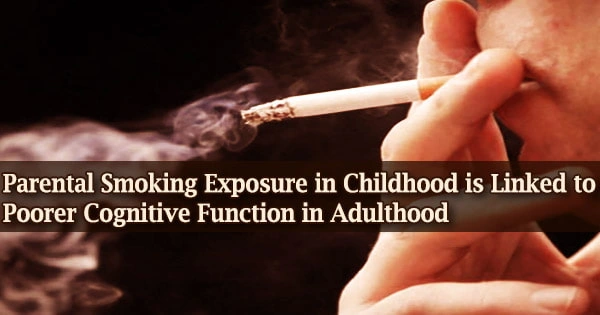A study led by the University of Turku’s Research Centre of Applied and Preventive Cardiovascular Medicine found that exposure to parental smoking during childhood and adolescence is linked to lower learning ability and memory later in life.
Cognitive deficiencies, such as learning and memory problems, are growing more widespread as the population ages. Active smoking has been shown to harm cognitive function and lead to the development of cognitive abnormalities. Secondhand smoking has been linked to similar short-term connections.
At any age, cognitive functions are critical for daily life. One of the goals of Smart Ageing is to look into ways to increase cognitive abilities. This systematic review assesses the intervention’s positive effects on cognitive processes.
The negative consequences of childhood secondhand smoking exposure may transfer over to midlife learning ability and memory function, according to the findings of a longitudinal Finnish study.
Perception, attention, memory, decision-making, and language understanding all fall under the category of cognitive function. It plays an important part in everyday and social conduct.
From childhood to young adulthood, cognitive functions improve. During the 20s and 30s, some cognitive functions, such as executive functioning and working memory, reach a peak.
According to Senior Researcher Suvi Rovio of the University of Turku’s Research Centre of Applied and Preventive Cardiovascular Medicine, previous studies have focused on adulthood exposure or the short-term effects of childhood exposure, whereas this study provides new information on the long-term associations between secondhand smoking exposure in childhood and cognitive function in midlife.
Previous studies have focused on adulthood exposure or the short-term effects of childhood exposure, whereas this study provides new information on the long-term associations between secondhand smoking exposure in childhood and cognitive function in midlife.
Suvi Rovio
The findings of this study show that, in order to promote adult brain health, the prevention of secondhand smoking exposure should focus on children and adolescents. Aside from preventing children and adolescents from starting to smoke, they should also be protected from secondhand smoke exposure at home and elsewhere.
Memory, attention, executive functions, and processing speed may all be affected as an elderly person’s cognitive abilities deteriorate. It’s been proven that as people age, their cognitive capacities deteriorate, they have more trouble completing fundamental daily chores.
As a result, improvements in cognitive processes through intervention programs are drawing interest from people of all ages. Over 2,000 people between the ages of 34 and 49 were tested on their cognitive abilities.
Participants who had been exposed to parental smoking as a child had weaker learning ability and memory in midlife than those whose parents did not smoke in their presence, according to the findings.
This link was seen regardless of whether the participants had smoked in childhood or in maturity. The gap in cognitive function between individuals who had been exposed to parental smoking and those who had non-smoking parents was equivalent to five years of aging.
The research is part of the continuing national Cardiovascular Risk in Young Finns Study, which is supervised by the University of Turku’s Research Centre of Applied and Preventive Cardiovascular Medicine.
The researchers of the follow-up study looked at 3,596 people for their cardiovascular risk factors throughout the course of 31 years, from childhood to adulthood.
















